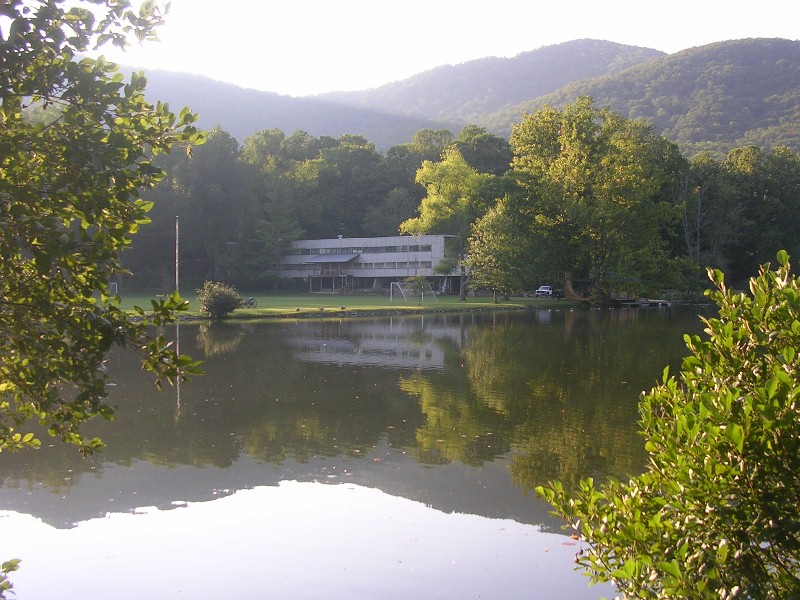TITLE: Learn By Programming
AUTHOR: Eugene Wallingford
DATE: December 26, 2016 8:38 AM
DESC:
-----
BODY:
The latest edition of my compiler course has wrapped, with grades
submitted and now a few days distance between us and the work.
The course was successful in many ways, even though not all of
the teams were all able to implement the entire compiler. That
mutes the students' sense of accomplishment sometimes, but it's
not unusual for at least some of the teams to have trouble
implementing a complete code generator. A compiler is a big
project. Fifteen weeks is not a lot of time. In that time,
students learn a lot about compilers, and also about how to work
as a team to build a big program using some of the tools of
modern software development. In general, I was quite proud of
the students' efforts and progress. I hope they were proud of
themselves.
One of the meta-lessons students tend to learn in this course is
one of the big lessons of any project-centered course:
... making something is a different learning experience from
remembering something.
I think that a course like this one also helps most of them learn
something else even more personal:
... the discipline in art-making is exercised from within rather
than without. You quickly realize that it's your own laziness,
ignorance, and sloppiness, not somebody else's bad advice, that
are getting in your way. No one can write your [program] for
you. You have to figure out a way to write it yourself. You
have to make a something where there was a nothing.
"Laziness", "ignorance", and "sloppiness" seem like harsh words,
but really they aren't. They are simply labels for weaknesses
that almost all of us face when we first learn to create things
on our own. Anyone who has written a big program has probably
encountered them in some form.
I learned these lessons as a senior, too, in my university's
two-term project course. It's never fun to come up short of our
hopes or expectations. But most of us do it occasionally, and
never more reliably than we are first learning how to make
something significant. It is good for us to realize early on our
own responsibility for how we work and what we make. It empowers
us to take charge of our behavior.
The quoted passages are, with the exception of the word "program",
taken from
Learn by Painting,
a New Yorker article about "Leap Before You Look: Black Mountain
College, 1933-1957", an exhibit at the Institute of Contemporary
Art in Boston. Black Mountain was a liberal arts college with a
curriculum built on top of an unusual foundation: making art.
Though the college lasted less than a quarter century, its effects
were felt across most of art disciplines in the twentieth century.
But its mission was bigger: to educate citizens, not
artists, through the making art. Making something is a different
learning experience from remembering something, and BMC wanted all
of its graduates to have this experience.
The article was a good read throughout. It closes with a comment
on Black Mountain's vision that touches on computer science and
reflects my own thinking about programming. This final paragraph
begins with a slight indignity to us in CS but turns quickly into
an admiration:
People who teach in the traditional liberal-arts fields today
are sometimes aghast at the avidity with which undergraduates
flock to courses in tech fields, like computer science. Maybe
those students see dollar signs in coding. Why shouldn't they?
Right now, tech is where value is being created, as they say.
But maybe students are also excited to take courses in which
knowing and making are part of the same learning process.
Those tech courses are hands-on, collaborative, materials-based
(well, virtual materials), and experimental -- a digital Black
Mountain curriculum.
When I meet with prospective students and their parents, I stress
that, while computer science is technical, it is not vocational.
It's more. Many high school students sense this already. What
attracts them to the major is a desire to make things:
games and apps and websites and .... Earning potential appeals
to some of them, of course, but students and parents alike seem
more interested in something else that CS offers them: the ability
to make things that matter in the modern world. They want to
create.
The good news suggested in "Learn by Painting", drawing on the
Black Mountain College experiment, is that learning by making
things is more than just that. It is a different and, in most
ways, more meaningful way to learn about the world. It also
teaches you a lot about yourself.
I hope that at least a few of my students got that out of their
project course with me, in addition to whatever they learned about
compilers.
~~~~
IMAGE. The main building of the former Black Mountain College, on
the grounds of Camp Rockmont, a summer camp for boys. Courtesy of
Wikipedia.
Public domain.
-----

